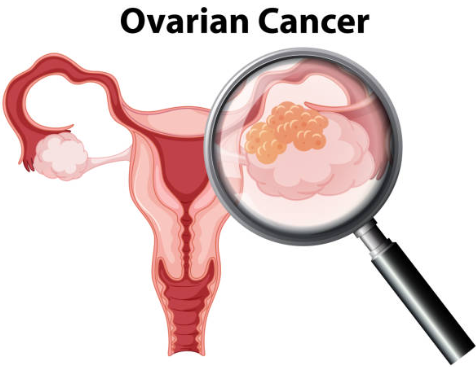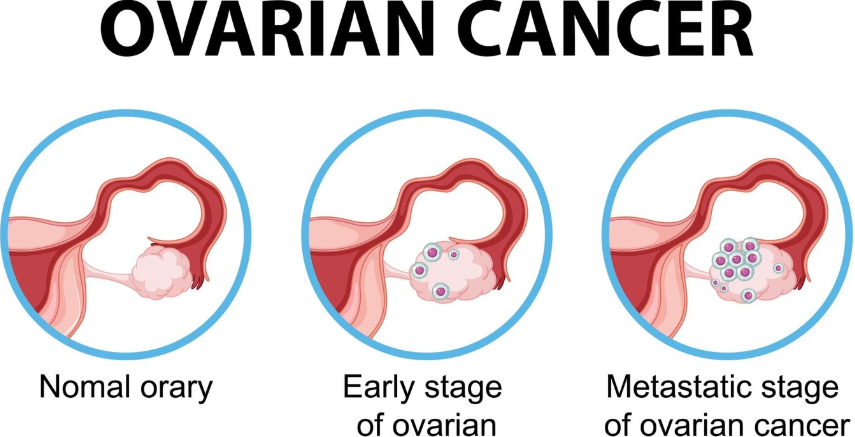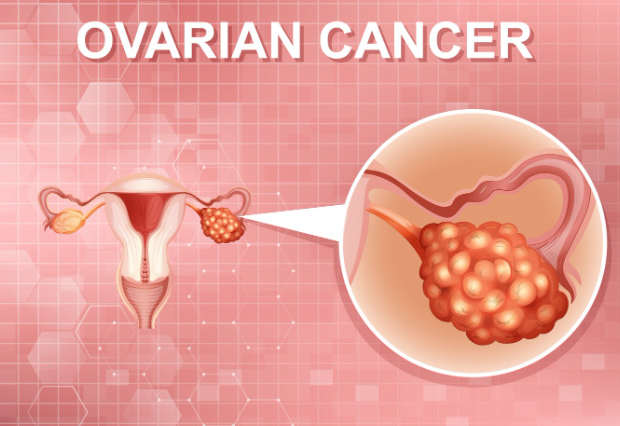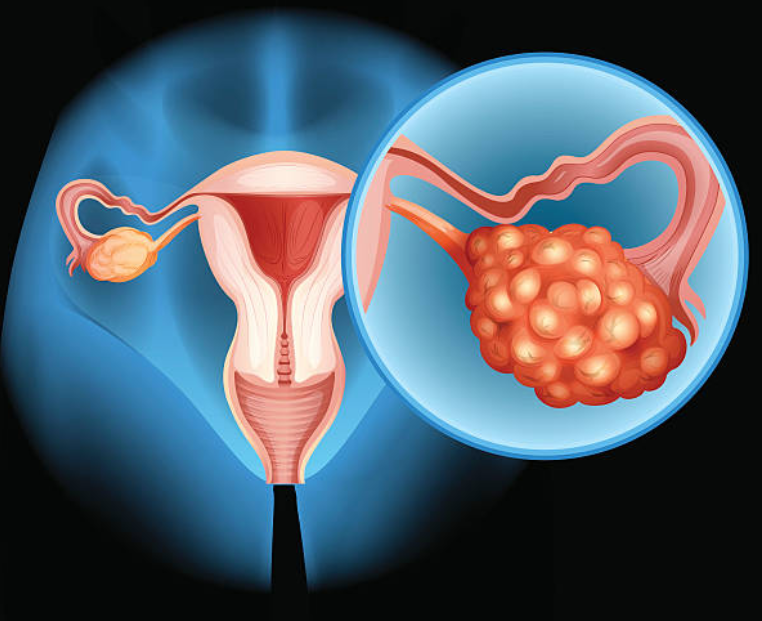World Ovarian Cancer Day, observed every year on May 8th, is a crucial global movement dedicated to raising awareness about ovarian cancer—the deadliest form of gynecological cancer worldwide. The 2025 campaign theme, “No Woman Left Behind,” highlights the urgent need for early detection, education, and equitable access to treatment for every woman, regardless of geography or socioeconomic status. This blog provides an in-depth overview of ovarian cancer, empowering readers with vital information that can save lives.
Recognizing the Silent Symptoms: Why Early Detection of Ovarian Cancer Saves Lives
Ovarian cancer is often referred to as the “silent killer” because its early symptoms tend to be subtle, vague, and easily confused with common, less serious conditions. This makes early diagnosis particularly challenging yet critically important.
Common Early Symptoms Include:
- Persistent abdominal bloating or swelling
- Pelvic or lower abdominal pain
- Difficulty eating or feeling full quickly
- Urinary urgency or increased frequency
- Changes in bowel habits such as constipation or diarrhea
- Unexplained fatigue or weight loss
Because these symptoms overlap with everyday health issues like indigestion, menstrual changes, or urinary tract infections, many women delay seeking medical advice. Unfortunately, this delay often results in ovarian cancer being diagnosed at an advanced stage, when treatment is less effective and prognosis poorer.
Early detection dramatically improves survival: When ovarian cancer is diagnosed at an early, localized stage, the five-year survival rate can be as high as 90%. This starkly contrasts with survival rates below 30% for late-stage diagnosis.
Women should be vigilant about persistent or worsening symptoms lasting more than a few weeks and consult a healthcare provider without delay. Diagnostic evaluation typically includes blood tests for tumor markers such as CA-125, imaging studies like transvaginal ultrasound and CT scans, and genetic testing for those at high risk.
World Ovarian Cancer Day 2025: How You Can Make a Difference
World Ovarian Cancer Day is not just about raising awareness—it’s about collective action. Everyone can contribute to this cause in meaningful ways:
- Spread Awareness: Use social media platforms to share information about ovarian cancer symptoms, risk factors, and the importance of early detection. Use hashtags like #WOCD2025 and #NoWomanLeftBehind to amplify your message globally.
- Participate in Events: Join or organize local teal-themed walks, runs, or educational workshops to raise funds and awareness. These community events foster solidarity and support for affected women.
- Support Patients: Volunteer or donate to ovarian cancer support groups and counseling organizations to provide emotional and practical assistance to patients and caregivers.
- Advocate for Research and Policy: Encourage policymakers and healthcare leaders to invest in ovarian cancer research, improve access to screening technologies, and ensure equitable treatment availability worldwide.
Even small actions can create a ripple effect, helping ensure that no woman is left behind in the fight against ovarian cancer.
Cracking Myths About Ovarian Cancer: What Women Need to Know
Misinformation about ovarian cancer can delay diagnosis and treatment. Let’s debunk some common myths:
- Myth 1: Ovarian cancer only affects older women.
Reality: While the risk increases with age, ovarian cancer can affect women of all ages, including those in their 30s and 40s. Awareness should not be limited by age. - Myth 2: Pap smears detect ovarian cancer.
Reality: Pap smears screen for cervical cancer, not ovarian cancer. Currently, there is no reliable routine screening test for ovarian cancer in women without symptoms. - Myth 3: Ovarian cancer always causes obvious early symptoms.
Reality: Early-stage ovarian cancer symptoms are often vague and easily overlooked, making awareness and vigilance essential.
Understanding these facts empowers women to take proactive steps toward early diagnosis and timely treatment.
The Power of Awareness: Stories and Statistics from World Ovarian Cancer Day
Ovarian cancer affects approximately 314,000 women worldwide each year, causing about 207,000 deaths annually. The incidence is projected to increase by nearly 40% by 2040, with the greatest impact expected in low-resource countries where access to healthcare is limited.
World Ovarian Cancer Day unites nearly 200 ovarian cancer organizations globally, amplifying the message that early detection saves lives. Awareness campaigns have led to improved symptom recognition, earlier diagnoses, and increased funding for research.
Sharing patient experiences and survivor stories plays a vital role in breaking stigma, encouraging women to seek medical help promptly, and fostering a supportive community for those affected.
Ovarian Cancer Prevention and Risk Reduction: Latest Research and Lifestyle Tips
While some risk factors like age and genetics cannot be changed, adopting healthy lifestyle habits can help reduce ovarian cancer risk:
- Maintain a healthy weight through balanced nutrition and regular physical activity.
- Limit hormone replacement therapy (HRT) use and discuss risks with your healthcare provider.
- Consider oral contraceptives: Long-term use of birth control pills has been shown to reduce ovarian cancer risk.
- Avoid exposure to environmental toxins such as pesticides and industrial chemicals.
- Manage stress through mindfulness, yoga, or other relaxation techniques to support overall health.
For women with a strong family history or known genetic mutations (such as BRCA1/2), genetic counseling is essential. Preventive options, including risk-reducing surgery, may be recommended to lower cancer risk.
Emerging research is also exploring complementary therapies, including Ayurveda, to support conventional treatment and improve quality of life.
Looking Ahead: The Promise of New Research and Vaccines
Innovative research efforts are underway to revolutionize ovarian cancer prevention and treatment. For example, a promising vaccine called OvarianVax is being developed to train the immune system to recognize and eliminate ovarian cancer cells before tumors develop. Initially targeted at women with BRCA mutations, this vaccine could one day become a routine preventive measure for all women, transforming the future of ovarian cancer care.
World Ovarian Cancer Day 2025 is a powerful reminder that knowledge, early detection, and equitable treatment access can save lives. Recognizing the silent symptoms, dispelling myths, and taking preventive measures are essential steps toward ensuring that no woman is left behind in the battle against ovarian cancer.
If you or someone you know experiences persistent symptoms or has risk factors for ovarian cancer, consult a healthcare professional promptly. Early diagnosis and timely treatment make all the difference.
At Bharath Cancer Hospital, we are committed to providing specialized care, advanced diagnostics, and compassionate support for ovarian cancer patients. Contact us to learn more about screening, treatment options, and how we can assist you on your journey toward health and healing.







